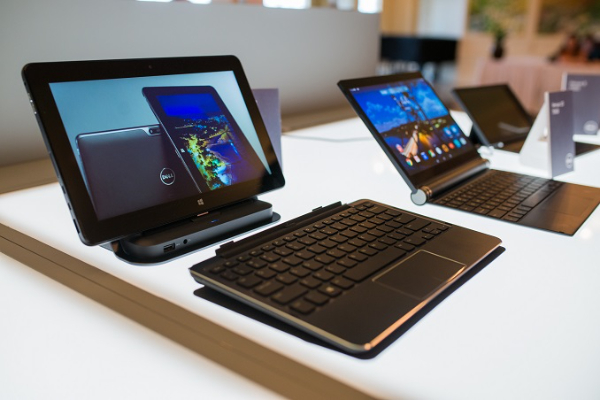In the ever-evolving landscape of technology, the choice between a tablet and a laptop is far from arbitrary. It hinges on your specific needs and purposes. While possessing both devices for diverse tasks is ideal, budget constraints often necessitate choosing the most suitable option. In this article, we will dissect the advantages of each device, empowering you to make an informed decision.
Main Pros of Tablets
At their current stage of evolution, tablets are not considered fully-fledged portable computers. However, they can serve as compelling alternatives to traditional laptops, depending on your requirements. Here are the primary benefits of tablets:
1. Mobility
- Tablets are renowned for their compactness and featherlight nature, allowing effortless portability. Conversely, laptops often necessitate the purchase of a dedicated bag for transportation.
2. Display Resolution
- Tablets boast displays akin to high-quality smartphone screens, which can significantly differ from laptop monitor screens. This distinction often translates into tablets being more cost-effective.
3. Built-in Cameras
- Tablets and smartphones typically feature dual cameras, enabling photography and video recording. Laptops, on the other hand, primarily offer webcam functionality for video calls.
4. Fast Access and Speed
- Tablets offer rapid startup and instant reactivation from sleep mode, enhancing accessibility. Their touch screens facilitate swift navigation, and mobile operating systems exhibit superior performance.
5. App Reliability
- Downloading applications and games from official app stores minimizes concerns about malware and viruses, a benefit not always guaranteed when downloading from the web.
6. Resistance to Damage
- Tablets, while not impervious, tend to withstand mechanical damage better than laptops. They are more resilient to bumps and falls, making them a preferable choice for durability.
7. Multi-Functionality
- Tablets can seamlessly double as e-readers and digital frames. They often feature GPS modules, serving as navigational tools when coupled with 3G support.
Main Pros of Laptops
Laptops, those enduring workhorses of technology, continue to hold relevance in the digital landscape. Their advantages are manifold:
1. Display Size
- Laptops typically boast larger screens, rendering them more conducive to a wide array of tasks. They can often serve as desktop computer replacements, a feat tablets may struggle to achieve.
2. Input Devices
- Laptops come equipped with versatile input devices such as keyboards, mice, and touchpads. This comprehensive toolset is indispensable for tasks involving serious software, editors, and intricate work.
3. Range of Tasks
- Laptops are versatile, capable of executing a vast spectrum of functions. They excel at tasks requiring significant computing power, making them indispensable for resource-intensive activities.
4. Internal Memory
- Laptops typically offer more substantial internal storage, be it in the form of hard drives or SSDs. This capacity surpasses that of most tablets, catering to users with substantial storage needs.
5. USB Accessibility
- Laptops are equipped with multiple USB ports, facilitating connectivity with external devices such as flash drives. In contrast, tablets may require additional accessories, like OTG cables, to support such connections.
6. Software Diversity
- Laptops offer access to a vast library of software, with support for mature operating systems. While tablets continue to grow their app ecosystems, laptops remain the go-to choice for diverse software needs.
Choosing Between a Tablet and a Laptop
The crux of this decision lies in a deep understanding of your specific requirements. Tablets are contemporary and highly portable, making them suitable for web browsing, social networking, and multimedia consumption. However, for tasks demanding robust computing power, such as professional work or gaming, laptops are the preferred choice.
For Home Use: Laptops can seamlessly replace desktop computers and provide the flexibility of portability when required.
For Professionals: Laptops, with their robust hardware and mature operating systems, are indispensable for tasks involving serious software and resource-intensive applications.
For Gamers: Tablets, while improving in performance, may not meet the demands of dedicated gamers. High-performance laptops remain the preferred choice.
For Students: Tablets can suffice for many student tasks but may fall short when extensive typing and software usage are necessary. Laptops offer a more comprehensive solution.
For Internet Enthusiasts: Tablets excel in providing quick and convenient access to the web and social networks.
For Children and Seniors: Tablets are user-friendly and suitable for individuals at both ends of the age spectrum.
In conclusion, the decision between a tablet and a laptop hinges on your individual needs and priorities. While owning multiple devices is ideal, practicality often dictates choosing one. Hybrid devices that combine the features of both tablets and laptops are also available, offering a middle ground for those seeking versatility. As technology continues to evolve, the boundary between these devices may blur further, offering even more choices for consumers.

